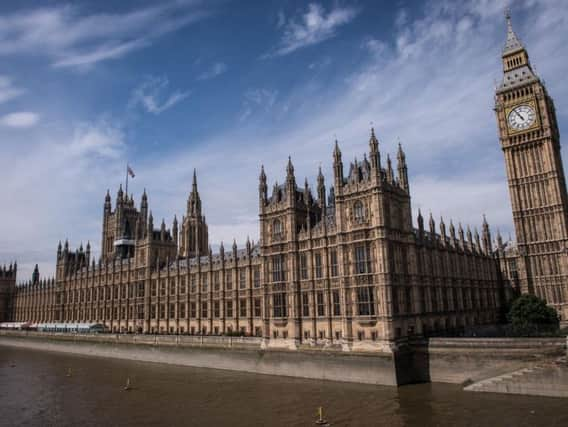Businesses '˜were carved up like a Sunday roast', MPs are told


Labour’s Clive Lewis made the comments amid a flurry of condemnation in the Commons over how the bank’s global restructuring group (GRG) operated.
MPs heard that the GRG “was more like an abattoir” where firms were taken apart, as well as suggestions this was part of an “intended and co-ordinated strategy”. Leading a backbench business debate, former shadow business secretary Mr Lewis said: “We do know that 90 per cent of GRG administered businesses never made it back to mainstream banking. This is a very high proportion. The cost of this is immeasurable, but we believe it to be in the tens of billions. So let’s be clear here. This is the potential size of the injustice that has taken place in our country. If it is this big, it may be the largest theft anywhere, ever.
Advertisement
Hide AdAdvertisement
Hide Ad“And if we begin to take into account the opportunity cost to the economy of business failure and businesses that have been unable to grow, if we begin to include the job losses, homes, the losses of health, relationship and lost taxes, we can see the costs are likely to be immeasurable.”
MPs heard that businesses were “carved up like a Sunday roast” and only placed in GRG because they wanted to move banks or had made a complaint.
“Since 2008, we know that 16,000 small businesses were put into GRG and the vast majority of them were liquidated,” said Mr Lewis.
“I think that tells you all you need to know. This was meant to be somewhere where they were put back to try to get them into a situation where they would come back as a viable business. Actually, it was more than an intensive care unit, it was more like an abattoir, where they were actually stripped and taken apart.”
Advertisement
Hide AdAdvertisement
Hide AdAhead of the debate the Treasury select committee published a memo called “Just Hit Budget!” sent to GRG staff in 2009 and released by the bank to MPs. It told staff that “sometimes you need to let customers hang themselves”, under the heading “rope”.
Tory MP and committee chairwoman Nicky Morgan said the memo “lifts the lid on a culture at RBS”. She added: “When I hear constituents and others say that they will never trust a bank again, they will never ask a bank again for money, then this should be a chilling moment for all banks involved in lending and working with SMEs.”
Mr Lewis’s motion calls for an independent inquiry into how financial institutions treat small and medium-sized businesses, and a new tribunal system to deal with financial disputes involving SMEs.
An RBS spokesman said the bank had acknowledged mistakes were made “and have apologised that we did not always provide the level of service and understanding we should have done for these customers in the aftermath of the financial crisis”.
Advertisement
Hide AdAdvertisement
Hide AdShe added: “The regulator has again confirmed that the remediation steps we announced to address concerns for customers are appropriate. Any customer who feels they were treated inappropriately whilst in GRG should make use of the complaints process.”
The spokesman said RBS was pleased that the regulator had confirmed that the most serious allegations made against the bank had not been upheld.
The RBS spokesman said the “Just Hit Budget” document was written in 2009 by a junior manager who is no longer employed by the bank.
The spokesman added: “It had limited distribution and at no time formed part of GRG or RBS policy. The language used in the document was completely inappropriate and the bank does not condone it. The FCA’s announcement last November made clear that, in a significant majority of cases, it was likely RBS’s actions did not result in material financial distress to customers.”
The spokesman said the document was circulated within one regional office and was also sent to one GRG office in the UK and one overseas.